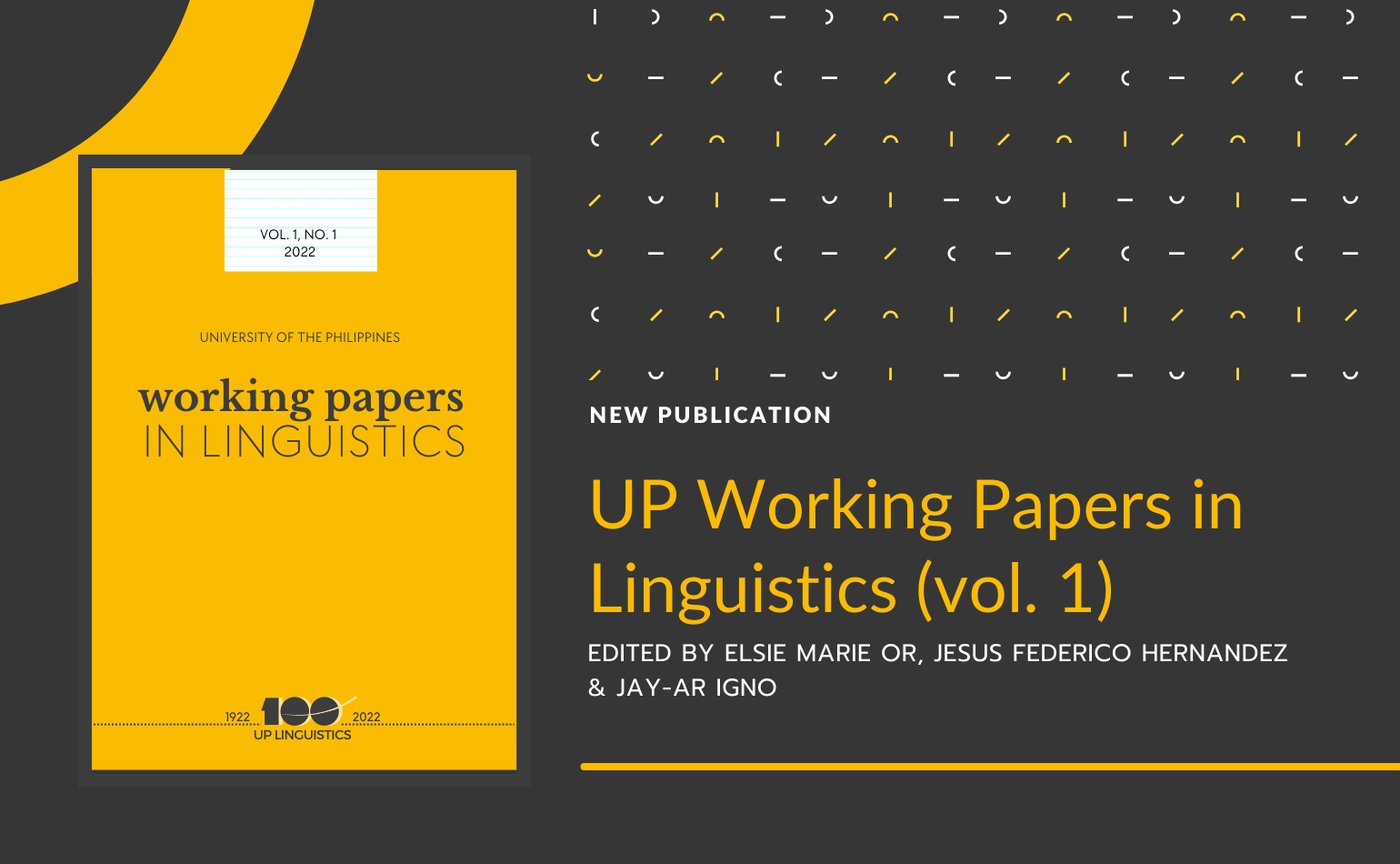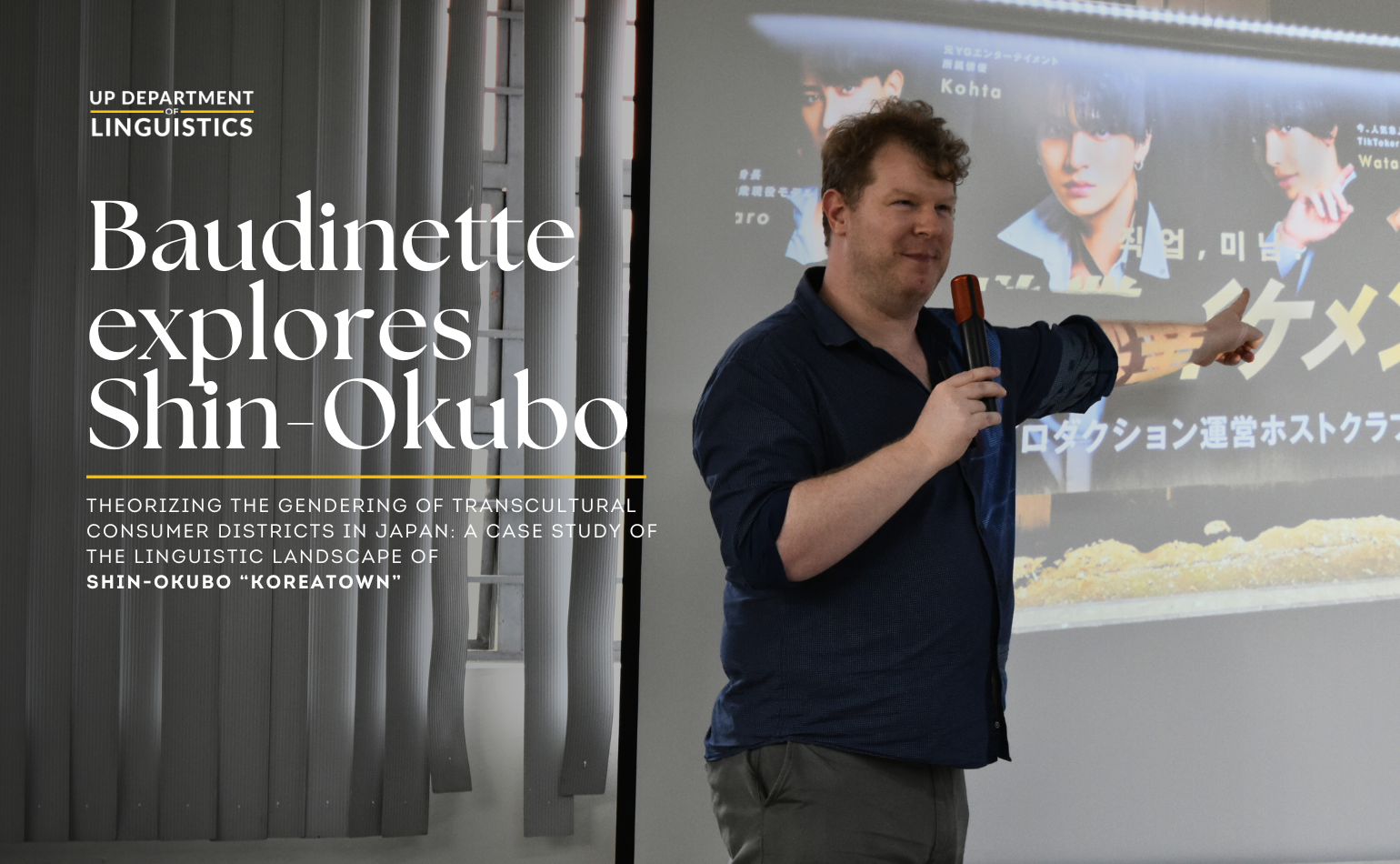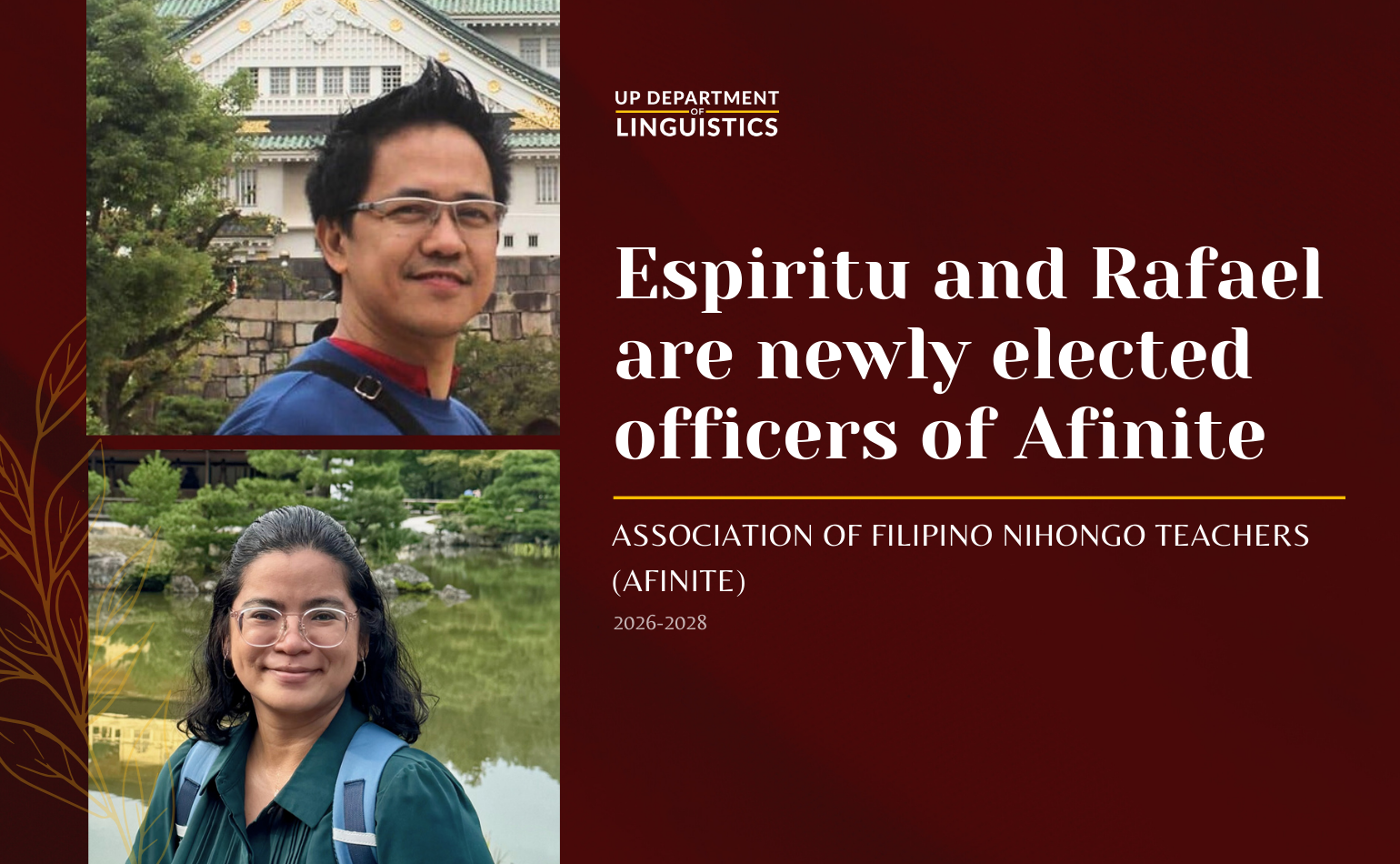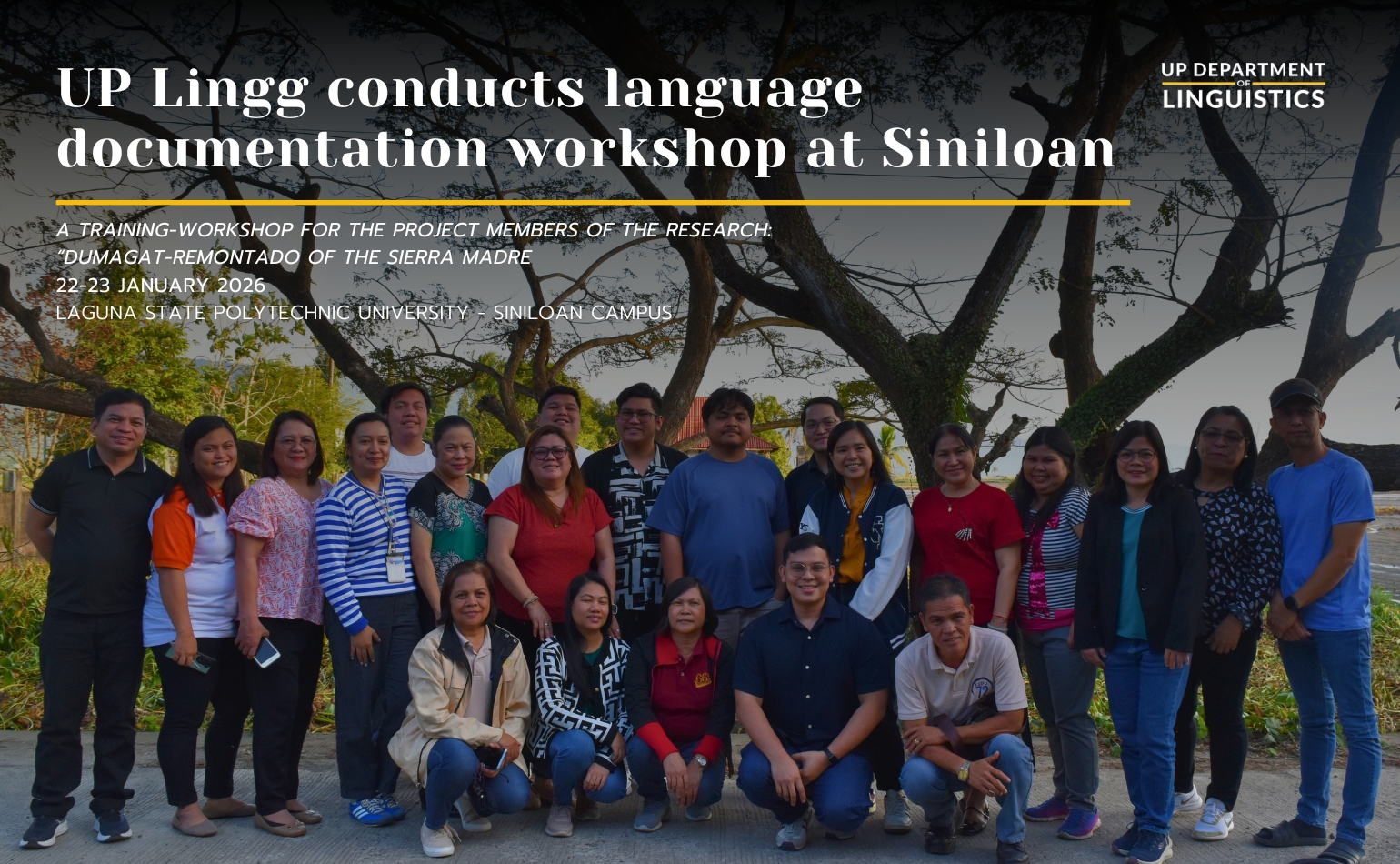
Following the tradition set by Prof. Otto Johns Scheerer in the early years of the Department, we have created a new working papers journal to showcase the works primarily done by the undergraduate students of the Department in order to encourage students to continue learning more about our country’s linguistic and cultural heritage, as well as interrogate or search for solutions to language-related issues in our nation.
The UP Working Papers in Linguistics (UPWPL) is an open access journal featuring preliminary research and reports on research in progress done by scholars affiliated with the Department. Below is the introduction to the maiden issue written by Asst. Prof. Elsie Marie Or, who is one of the issue editors along with Assoc. Prof. Tuting Hernandez and Asst. Prof. Jay-ar Igno.
We are very proud to present the inaugural issue of the UP Working Papers in Linguistics (UPWPL). This series was originally conceived as a way to properly archive and broadly disseminate some of the excellent Lingg 199 capstone research projects that our undergraduate students produce, as well as other term papers and essays written by members of the UP Lingg Dept. community.
Over the years, we have seen our students produce many commendable studies, some of which could be considered the first of their kind in the country, with some that have documented first-hand data on under-studied and increasingly threatened languages and dialects in the Philippines. In its 100 years of existence, the Department has always been committed to training its students to not only be linguists and language specialists, but to also become social scientists with the awareness that the works that they produce are not only for themselves to obtain a numerical grade in their classes, but that they also have the potential to have some impact in the field and in our society through their engagement in research which could illuminate issues–particularly language-related issues–that influence the lives of everyone.
In this issue, we present some of the best capstone research projects produced in the past three and a half years. These capstone research papers represent the culmination of what the undergraduate students have learned during their stay in our program.
Dave Badiola (Batch 2019) presents a survey of theses and dissertations done by the alumni of the Department’s MA and PhD programs in order to reveal trends in the research topics that they have worked on, how this reflects the historical development of Philippine linguistics as practiced by the past and present members of the Department, and to see what else could and should be done by the Department in order to fulfill its mandate.
Mary Dianne Jamindang (Batch 2022) explores the concepts that are encapsulated in the Tagalog word sakit by conducting a semantic and syntactic analysis of the word and how it is used. In doing so, she aims to bridge our linguistic and cultural understanding of pain and how it is talked about in the field of health care.
Gertrude Beatriz Lim (Batch 2022) delved into the world of buy-and-sell communities for K-pop merchandise on social media sites to document the jargon that members of these communities use to engage in transactions and that also reflects their membership to the K-pop fandom. Lim’s work provides another lens through which we can see and understand the Hallyu phenomenon in our local context.
Meanwhile, James Manrique’s (Batch 2021) error analysis of Korean language learners’ written compositions at different language proficiency levels provides preliminary insights into how Filipino students learn Korean as a foreign language and the factors that influence their acquisition of the language. James’ study is a valuable contribution to the currently sparse literature on foreign language learning in the Philippine context.
Also included in this issue are several selected think pieces from the Lingg 170 (Introduction to Ethnolinguistics) and Lingg 180 (Language Issues in the Philippines) classes last A.Y. 2021-2022. In these essays, students reflect on various topics including the effects of language and cultural contact and its implications on how we view the world, our conceptualization of time as reflected in our temporal expressions, the role that the English language plays in our society and our relationship with this language of our former colonizer, and how we are linguistically socialized to perform and think about gender norms or roles. The final piece in this collection is a short statement, written by Jino Escudero, Simoun Monzon, and Michaella Tindog, which details what they believe to be the role and responsibility of language and communication researchers in effecting change by helping to solve social problems in our nation.
In a printed announcement released in 1925, Otto Johns Scheerer, the second chairperson of the Department, wrote that, in publishing through his own means the papers that his students wrote for their seminars on Philippine linguistics in a series of pamphlets, he hoped to encourage and reward the research undertaken by his students. He believed that there is no one better who could bring to light the “valuable information as lies […] untouched or hidden within the confines of our archipelago” than (“properly guided”) students who hail from our own local ethnolinguistic groups.[1] He called this series which he began The Archive.
Since Scheerer’s time, the Department has grown exponentially. Awareness and interest in Philippine linguistics has also grown, and The Archive has now been established as the Department’s official peer-reviewed academic journal, which has since published many established linguists in the field, including Cecilio Lopez, Videa de Guzman, Ernesto Constantino, Lawrence Reid, Resty Cena, and R. David Zorc.
With the launch of this new series, we hope to continue in the same spirit as Scheerer when he first established The Archive in encouraging new researchers of Philippine languages and dialects by providing them with a platform where they can share their works and their own perspectives and thoughts, thus giving them a sense that the work that they do is relevant to the advancement of the field of linguistics in the Philippines and to society at large.
[1] Lopez, C. (1970). Foreword. The Archive, 1(1), pp. 1-3.
Congratulations to all the students and alumni whose papers were selected for publication in the inaugural issue of the UPWPL!
Published by UP Department of Linguistics



